AJN News
Bahrain’s Ambassador to the United States: «Bahrain and Israel and will lead to a sustainable peace in the Middle East»
AJN Agency.- The signing of the Abraham agreements represents the “promise to build a better life with security and opportunities for all,” said Houda Nonoo, former Bahrain ambassador to the United States in an exclusive interview with the AJN agency.
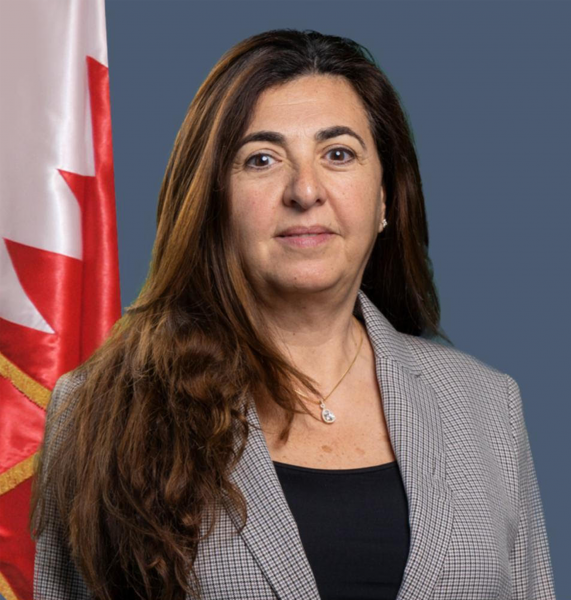
AJN Agency.- Houda Nonoo was Bahrain’s ambassador to the United States between 2008 and 2013 and became the first Jewish diplomat in the Arab region, and the third woman to be designated Bahrain’s ambassador. In dialogue with the AJN agency, she assured that “while anti-Semitism is on the rise in the West, there is a great way of life in Bahrain and it is a wonderful place to raise a Jewish family”.
During the interview with AJN, Ambassador Nonoo shared her analysis on the Abraham Accords signed with Israel and stressed that «they will lead to a sustainable peace in the Middle East.»
Furthermore, she narrated what was it like to visit Israel for the first time in November 2020: “I had the honour and privilege of participating in a delegation, led by the Foreign Minister to Israel – the first time Bahraini officials landed in Israel, flying on our national carrier, Gulf Air Flight number 972. While it was historic and memorable for all, it was particularly exciting for me as a Bahraini Jew.»
AJN: What do the Abraham Accords mean to you?
HN: As a citizen of this region, I am filled with excitement to see the construction of a new Middle East, one focused on coexistence and prosperity. I am immensely grateful to His Majesty, King Hamad bin Isa Al Khalifa and His Royal Highness, Prince Salman Bin Hamad Al Khalifa, the Crown Prince and Prime Minister, for their leadership, vision, and courage to lead our nation proudly and boldly into the future through the signing of the Abraham Accords. I, like my fellow Bahraini citizens, express our support and enthusiasm, for the opportunity our leaders have seized and the promise it represents to build a better life with security and opportunity for all of us and for future generations still to come.
AJN: What is your perception of this new reality in the Middle East?
HN: I believe that at the core of this agreement is the desire to create a new Middle East, one built on peace and prosperity for all. I believe that the growing partnerships between Bahrain and Israel, will lead to sustainable peace in the region.
AJN: After the signing of the Abraham Accords, social networks were flooded with favorable expressions and a lot of acceptance that left us astonished.
Were you also surprised or did you already know that the signing would be very well received?
HN: Yes, it was very exciting to see social media was buzzing with comments, photos and videos of support. Immediately after the announcement of the establishment of relations, our Jewish community in Bahrain received calls and emails from Jews around the world wishing us a mazal tov – or mabrouk, as we say in Arabic – and shared their enthusiasm and eagerness to visit us soon.
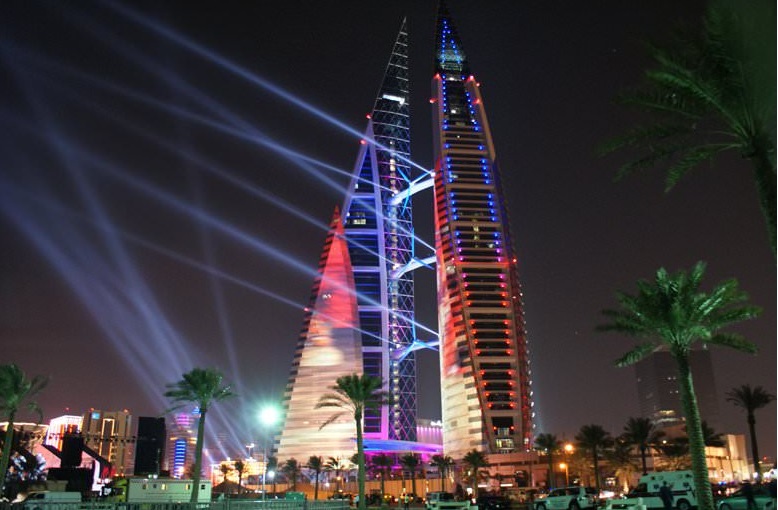
El World Trade Center de Bahrein
AJN: What do you believe is the future for the Bahrain-Israel relationship following the signing of the Accords?
HN: While 2020 was historic for Bahrain and Israel, I have always felt that 2021 would be even better as we begin to feel its influence. In Bahrain, we see a few areas of opportunity resulting from the new Bahrain-Israel relationship, including oil & gas, logistics, information, cyber-security, technology, manufacturing, financial services, healthcare, education, and travel and tourism.
The COVID pandemic impacted economies around the world. Now, as economies open up again, there is a new market for businesses in Bahrain and Israel to tap into. The opportunities in technology, start-ups, fintech, industrial manufacturing, real estate, agriculture, food processing and consumer goods have no limits. Additionally, our countries can benefit from sharing best practices as we continue to strengthen our economies.
In January, the National Bank of Bahrain signed MOUs with Israel’s two largest banks – Bank Hapoalim and Bank Leumi. This was an important first step as both governments created plans to help their business communities participate in opportunities in both markets. These MOUs helped enable investments, trade, clearing services, foreign exchange, securities trade and other critical components to facilitate business between the two.
AJN: Was there an agreement also signed with Mekorot, the Israeli water company?
HN: Yes. Recently, Bahrain signed a $3 million-dollar agreement with Mekorot to share water knowledge and technologies. The agreement includes consulting by Mekorot for Bahrain’s Electricity and Water Authority (EWA) regarding water projects.
Israel is known for its healthcare innovation, creating cutting edge solutions to some of the world’s most complex healthcare challenges. By partnering, we can propel healthcare forward. We can also benefit from an exchange of doctors, research and medical training programs.
Recently, Bahrain and Israel announced our first medical cooperation initiative between Salmaniya Medical Complex, our largest government hospital, and Sheba Medical Center which includes exchange programs.
Gulf Air, our national carrier, announced that it is planning on launching direct flights to Tel Aviv. I believe that will open up travel between our two countries and many of our hotels are developing special packages and offerings for Israeli guests.
This is just the beginning, there are many more announcements to come.
AJN: In November 2020, you visited Israel for the first time, can you describe your experience?
HN: I had the honour and privilege of participating in a delegation, led by the Foreign Minister to Israel – the first time Bahraini officials landed in Israel, flying on our national carrier, Gulf Air Flight number 972. While it was historic and memorable for all, it was particularly exciting for me as a Bahraini Jew.
This was my very first visit to Israel. Ironically, after never visiting Israel my whole life, I went twice within one week. During my five years serving in Washington, I made many new friends and was often asked if I had been to Israel. I always said, “Not yet.” In my heart, I hoped and prayed for the opportunity, but I was determined to wait for the moment when circumstances would allow such a visit. As a loyal and committed citizen of Bahrain, I naturally respected the reality of the situation. I could only dream. And hope. And wait. And dream some more. In November, that dream became a reality.
I am so delighted to have had the chance to visit. It was the manifestation of a dream that I have dreamed since I was a young child. As we embarked on the flight back to Manama, I thought about how one of the drivers for the Abraham Accords was to create a better future for our children – yours and mine. We are setting an example for them that focuses on building relationships. One which reminds them that we are stronger together. I pray that all of us now dedicate ourselves to the great work ahead to make the dreams come true for the youth of our region, and that’s broader than just the youth in Israel and the Gulf.
AJN: I’ve seen your Shabbat Shalom series every Friday through your social media. What inspired you to do this?
HN: I have always enjoyed connecting with people and after the Abraham Accords, I received many inquiries from media and Jews around the world, asking me about what this time meant for me, for our community and asking to learn more about Bahrain and our Jewish community. This became the impetus for me to rejoin Twitter and in many ways, the response was even more than I anticipated.
Many of the questions I receive center around a common theme – what is it like being Jewish in Bahrain? While I could continue to answer those questions, I wanted to do more, and to show just how accepting Bahrain is of our religion.
I was inspired to create the Shabbat Shalom series where each Friday, I bring traditionally Jewish items – like my Shabbat candles and Kiddush cup – and the now famous Kedem bottle of grape juice and take a picture of them with Bahraini landmarks such as the Tree of Life and King Fahd Causeway, which links Saudi Arabia and Bahrain.

Gran Mezquita de Bahrein
So far, these two words, “Shabbat Shalom,” have created a buzz and have reached more than 1.8 million people from all over the world who wish each other Shabbat Shalom because of these tweets. The feedback has been amazing – Jews, Muslims and Christians from all over the world (the US, UK, Europe, the Gulf, Israel, other Middle Eastern countries and Asia), all replying with a Shabbat Shalom greeting of their own and learning about Bahrain at the same time.
My hope is that, as more people are vaccinated that they will come visit Bahrain in person and experience these sites for themselves but until then, I’ll continue to enjoy sharing these little slices of Bahrain with you all.
AJN: In February, the Association of Gulf Jewish Communities launched and which you sit on the board of. What inspired the creation of the AGJC?
HN: As Jewish life continues to grow in the Arabian Gulf as more Jews move to the region for business opportunities, there is a greater need for more kosher food options, Pesach programs in hotels, Jewish schools, youth programming, additional synagogues and Jewish infrastructure. The Gulf has many things to offer. For example, whereas antisemitism is on the rise in the West, we don’t have any issues with that here. There is a great lifestyle, and it is a wonderful place to raise a Jewish family.
The AGJC is a people-to-people network of the Jewish communities from the GCC countries, who are developing Jewish life in the region. While each community is independent, we share a common goal and vision: for Jewish life in the GCC to flourish for the benefit of both residents and visitors. Under the spiritual leadership of Rabbi Dr. Elie Abadie, based in Dubai, and president Ebrahim Dawood Nonoo, based in Bahrain, we are partnering on different communal programs and services so that our resources, will enhance each other. The Association’s board consists of members from all six Gulf countries, who together will forge the path forward for growing Jewish life in the Gulf.
Under the AGJC, The Beth Din of Arabia, is in the process of being established, to assist with issues pertaining to personal status, inheritance, and voluntary business dispute resolutions in the region. The Arabian Kosher Certification Agency is also in the process of being created to oversee kashrut regionally using the same set of standards throughout all six Gulf countries, thereby making it easier for Jewish individuals to live in or travel around the Gulf.
AJN News
Argentina. Milei reflected on the Torah: «Those who play in all directions are the worst»
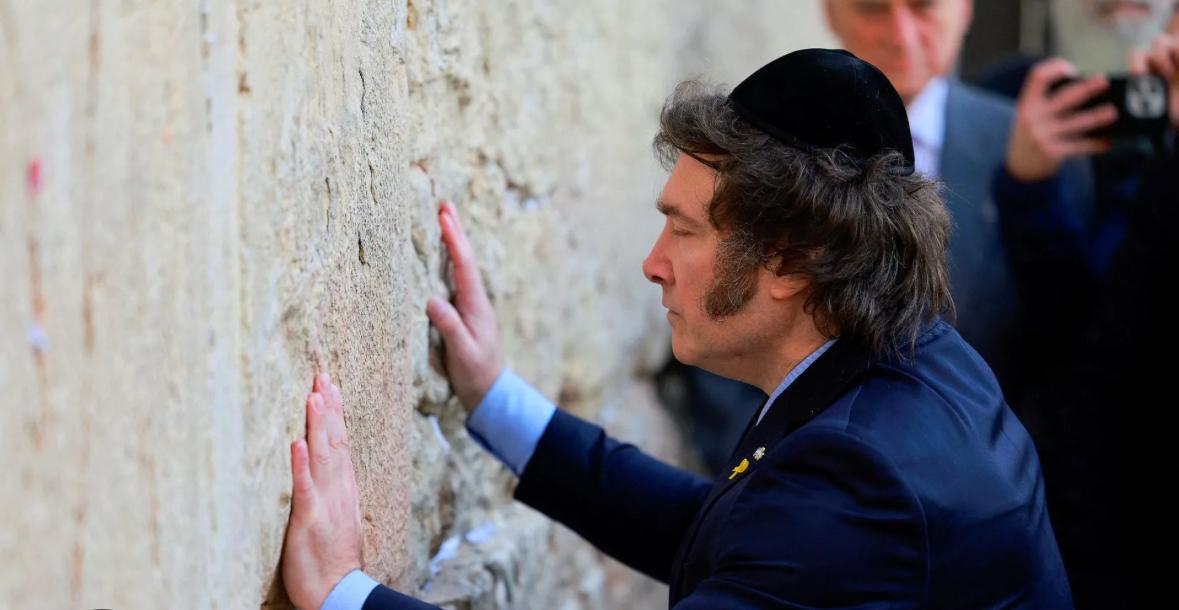
Agencia AJN.- Argentinian President, Javier Milei, once again resorted to the Torah, the sacred book of Judaism, to make a «reflection», such is the title of a post on his personal profile on the social network X that alludes to the political situation in his country, although in general terms.
On this occasion he referred to the current parashah (weekly reading portion of the Torah), Toldot, corresponding to the Book of Breishit (Genesis), which extends from perek (chapter) 25 and pasuk (verse) 19 to 28:9.
«The parasha says that Rivka, the wife of Yitzchak (Rebekah and Isaac), was worried when she was pregnant, because when she passed by a place of sanctity she felt that her son wanted to go there and when she passed by an impure place, too. And she was worried. and she went to consult with a prophet. The prophet answered her: you have two sons in your womb. One will be a leader of the people of Israel (Yaakov, Jacob) and another Esav who will be very evil, and will want to harm Yaakov and his offspring. And then she calmed down,» said the South American president.
«The question: does Rivka calm down after she is sure that she has a completely evil son, and before when she thought she had only one son she didn’t know what he would be like she was very disturbed?,” he asked.
«The answer: Rivka, when she thought that she had a single son, that he was LUKE without ideology and played for both sides, that worried her a lot. But then she found out that she has two, and it is clear that one plays for one side and the other completely the other way around, she calmed down,» Milei answered.
«Moral: Those who play for all sides are the worst of all, even much worse than the one who is completely evil. Because the one who is evil and shows himself as such, we have identified him. On the other hand, the other behaves like a good person and we never know what his attitudes and his evil intentions are,» he concluded, before saying goodbye with a «SHABAT SHALOM.»
AJN News
Argentina | Holocaust and Heroism Day. President Milei’s major speech against anti-Semitism and terrorism
»Therefore, in keeping with our history and with what we consider to be true, we ratify today our spirit of friendship and collaboration with the State of Israel and we offer Argentina’s candidacy for the International Presidency of the IHRA», expressed Milei.
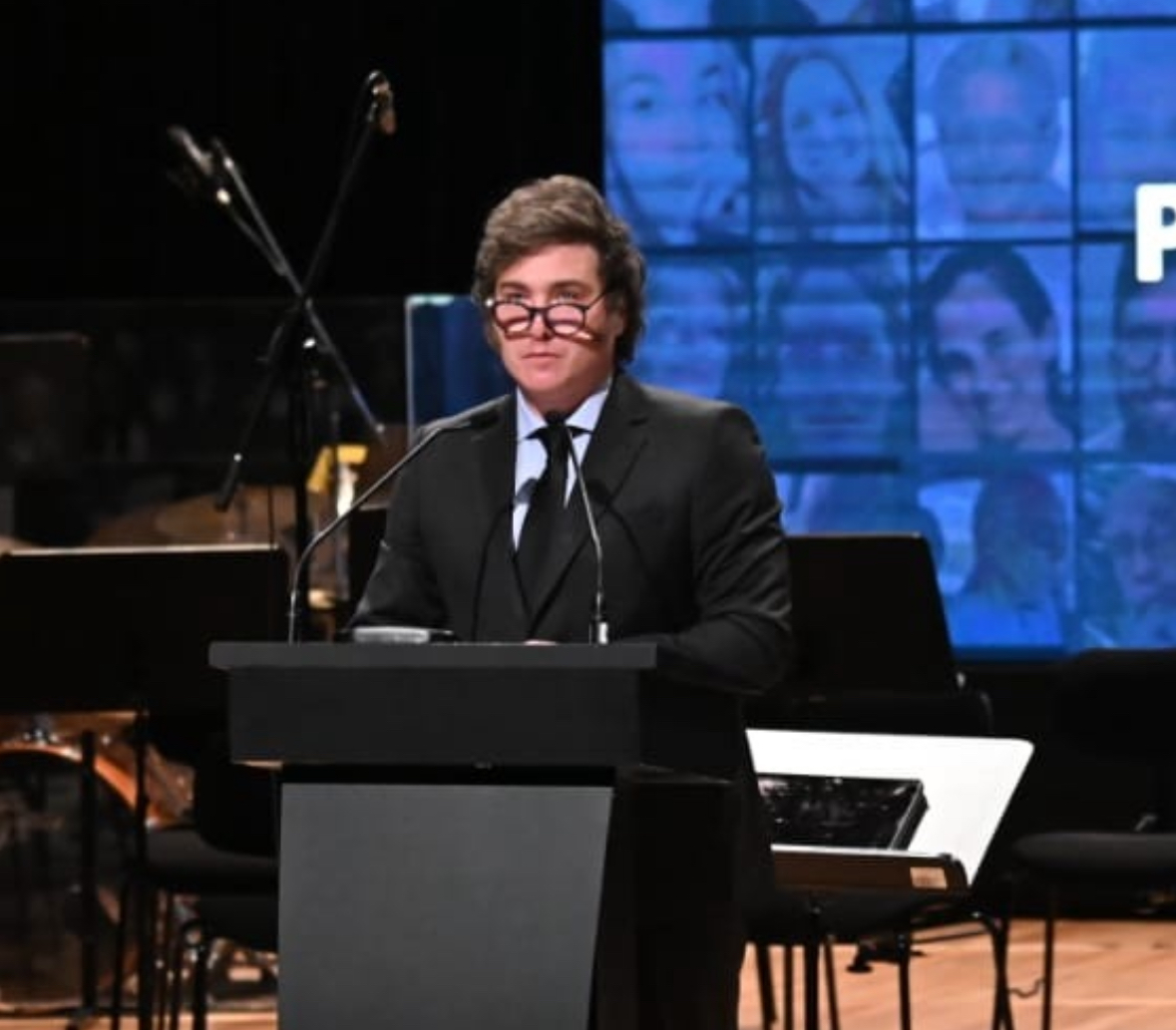
Agencia AJN.- At an event organised on Wednesday by the Delegation of Argentinean Israelite Associations (DAIA) and the Holocaust Museum of Buenos Aires to commemorate Holocaust and Heroism Day, the 81st anniversary of the Warsaw ghetto uprising, President Javier Milei announced ‘Argentina’s candidacy for the presidency of the International Holocaust Remembrance Alliance’ (IHRA).
The IHRA is an intergovernmental organisation of 35 states whose aim is to combat acts of anti-Semitism, intolerance and discrimination that can lead to genocides such as those experienced by humanity in the 20th century.
The main event was also attended by Nazi survivors, relatives of people kidnapped by Hamas, national, provincial and municipal authorities, judges, political leaders, diplomats, representatives of different religious denominations, community leaders, among others.
Argentina. Discurso y anuncio del presidente Javier Milei en el acto del Día del Holocausto organizado por el Museo del Holocausto y la DAIA @JMilei @DAIAArgentina @museoshoa #HolocaustRemembranceDay #YomHaShoah @Isaac_Herzog @AmbEyalSela @netanyahu #israel @israelmfa… pic.twitter.com/8uQVSq1inE
— Agencia AJN (@AgenciaAJN) May 9, 2024
President Milei’s full speech:
At the outset, I would like to pay tribute to Lior Rudaeff, an Argentinean living in Israel who was kidnapped and murdered by the Hamas terrorist organisation on 7 October. I would like to extend my sincere condolences to his family and loved ones, and call for the return of his body so that he can be given a proper farewell by them. Baruch Dayan Haemet to him and to all the victims of Islamic terrorism in Argentina and the world.
Today more than ever there can be no doubt that the scourge of Islamic terrorism on Israel and the Jewish people is not a problem alien to us Argentines, but one that affects us directly. First, because 21 Argentines were murdered by Hamas on that tragic day, 20 more Argentines were kidnapped and today, seven months after the attack, there are at least eight compatriots for whom we still do not know whether they are still among us or whether they have passed on to another life. Secondly, because when a battle is fought between good and evil, between freedom and oppression, between civilisation and barbarism, taking sides is not one option among others but a moral obligation.
Today we are here to remember perhaps the greatest tragedy in the history of mankind, we are doing so under the name of Holocaust and Heroism Day, and I would like to pause to discuss with you this second concept, heroism. Because I believe that the heroism and virtue of men is the flip side of tragedy, it is the only thing that can make the righteous prevail over those who seek to oppress them and rob them of their freedom. And because I believe that in times of darkness, when speaking out is costly and when the majority prefer to turn their backs on righteousness for their own convenience, promoting virtue is a commandment and a duty.
We remember today the Jewish resistance in the Warsaw ghetto, where 300,000 souls were imprisoned in inhumane conditions for three years by the Nazi regime, only to be transferred to extermination camps as we all know. We remember that one day in 1943 the prisoners took what few weapons there were and put up a fight. For 27 days they fought for their freedom, under unequal conditions and with virtually no chance of success. They fought for their freedom, which is a just cause in every time and place, and they chose to die fighting rather than be killed.
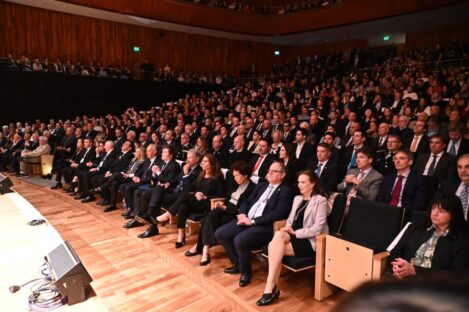
The struggle for freedom against adversaries always more powerful than themselves has been a constant in the history of the Jewish people, and has forged for them a heroic spirit, a warrior spirit. This is already clear in the sacred scriptures, it is seen in the exodus of the Jewish people from Egypt, escaping from the yoke of Pharaoh, leaving behind slavery to embrace freedom. The revolt of the Maccabees is clear when, despite being in a distinct minority, the least against the most, the weak against the powerful, they drove out the Greek invader and recaptured Jerusalem. It was never the number of soldiers that mattered, but the forces that came from heaven.
Fighting battle upon battle for over 4,000 years, though many were lost and though the temple in Jerusalem was destroyed twice, the Jewish people persisted. And today again, being under threat, surrounded by enemies who pursue a goal akin to the goal of those who imprisoned more than 300,000 souls in the ghetto 80 years ago, because the intention of Hamas on 7 October was the same as that of the Nazis, to directly and deliberately murder innocent people, if they did not do it on a larger scale, it was not because they did not want to but because they could not.
Today, we see in parallel to these sad events a recognition in the world of both intolerant Islamic fanaticism and anti-Semitism in its different versions. And to make matters worse, we see how all these phenomena are not perceived by the free world with the sharp condemnation and firm action they demand, but with discomfort and ambiguous gestures. I look around me at the rest of the leaders of the free world, especially the leaders of the great nations that should be the pillars of global freedom, and I see indifference in some and fear in others to stand on the side of truth.
Today the world is silent while there are still more than 100 hostages suffering, eight of whom are fellow Argentines. Not to mention the blatant anti-Semitism that has become commonplace on the campuses of educational institutions entrusted with the professional and human training of the West’s elites. I believe that the heroism we talk so much about and want to promote is also to defend the truth, to speak the truth when around us the truth is silenced.
That is why when the world is silent, we have an obligation to speak out, because it is the silence of the good that allows the barbarity of the bad, and because speaking out, looking straight and not turning a blind eye, even though it is difficult, even though for many it is inconvenient, is the only way to ensure that the Shoah is not repeated.
Emotivo acto del Día del Holocausto en Argentina con la presencia del presidente @JMilei organizado por @museoshoa y @DAIAArgentina.@JKnoblovits @CancilleriaARG @mondino @IsraelMFA @JonathanPeled @Isaac_Herzog @netanyahu @AmbEyalSela @LiorHaiat @BringThemHome23 #Israel pic.twitter.com/4gau1RIqiR
— Agencia AJN (@AgenciaAJN) May 9, 2024
And because God will not accept justifications or exculpations when it comes to rendering his ultimate judgement, we will not be able to tell him what, but I could not or what virtue was not convenient at the time, he will not judge us for what we thought, believed or wanted, but for having done the right thing in life. That is why today remembering the Shoah, remembering heroism and denouncing Islamic terrorism is an obligation, because without heroes we are defenceless in the face of an ever darker and longer night.
In closing I would like to thank Marcelo Mindlin, Jorge Knoblovits and the rest of the authorities of the DAIA and the Holocaust Museum for organising and inviting me to be part of this commemoration at such a difficult time for the Jewish people that demands that we all work back-to-back.
I also want to tell you that Argentina is a historic friend of the Jewish people. We were the first country in the region to recognise the existence of the State of Israel and today we proudly have the largest Jewish community in Latin America and the tenth largest in the world. Together with the Jewish community, we have suffered the cowardly attacks by the Iranian government, not only on the Jewish-Argentine community, but on the Argentinean people as a whole, which, thanks to the persistent efforts of those who seek the truth, are now, three decades later, beginning to be clarified.
Therefore, in keeping with our history and with what we consider to be true, we ratify today our spirit of friendship and collaboration with the State of Israel and we offer Argentina’s candidacy for the International Presidency of the IHRA (video), an institution whose value takes on new relevance and urgency every day, at a dark time, when the rest of the world is turning its back on Israel, they will find us at their firm side always.
Finally, and lastly, I would like to conclude with a letter from Rabbi Samson Raphael Hirsch, which seems to me to be very pertinent to the times we are living in and which should be present in our lives every day. This letter says: ‘Those who are convinced that their opinions are true and correct must express them constantly and at every opportunity with candour, and without regard to the degree of support they have and the level of opposition they will encounter. Lies need supporters to succeed; lies need the authority of majorities to fill what they lack in the rightness of their argument. Truth, on the other hand, will always win out in the end. Even if it takes time, noble, courageous and pure, expressed with all the ardour of conviction and with all the clarity of a sure conscience, expressed again and again on every occasion, it will eventually win the respect and esteem of even those who refuse to accept it. The only truth that has been lost without the possibility of regaining it is that whose possessors have not the courage to speak frankly of it. Truth was never defeated by the forces of resistance, it was only defeated when its possessors were too weak to defend it’.
Thank you very much.
-
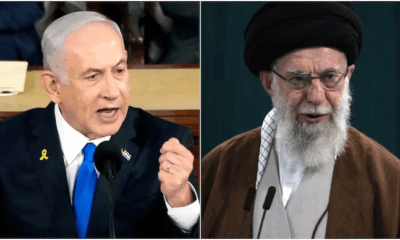
 Guerrahace 22 horas
Guerrahace 22 horasNetanyahu: ‘‘Atacaremos todas las instalaciones nucleares de Irán, tenemos la capacidad para hacerlo’’
-
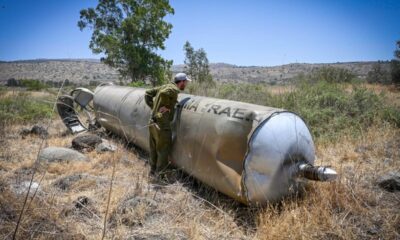
 Guerrahace 20 horas
Guerrahace 20 horasFragmentos de bombas de racimo iraní generan temor en Israel: ¿el misil iraní llevaba múltiples bombas?
-
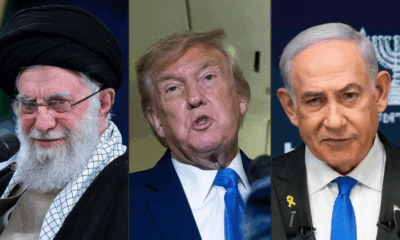
 Guerrahace 23 horas
Guerrahace 23 horasIsrael espera la decisión de Estados Unidos sobre su participación en los ataques contra Irán en un plazo de 24 a 48 horas
-
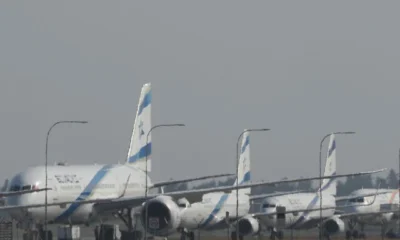
 Guerrahace 21 horas
Guerrahace 21 horasLa aerolínea de bandera israelí El Al operará ‘‘vuelos especiales para emergencias médicas’’ el día del descanso para repatriar a sus ciudadanos
-

 Guerrahace 22 horas
Guerrahace 22 horasNetanyahu aseguró que Israel destruyó más de la mitad de los lanzamisiles de Irán
-

 Medio Orientehace 3 horas
Medio Orientehace 3 horasEliminado en el sur del Líbano el comandante de artillería de Hezbollah responsable de ataques contra Naharía y Haifa
-
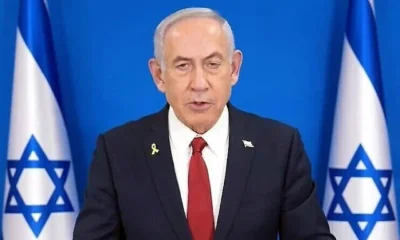
 Guerrahace 23 horas
Guerrahace 23 horasNetanyahu: Israel va ‘‘por delante de lo previsto’’ en su operación contra Irán
-
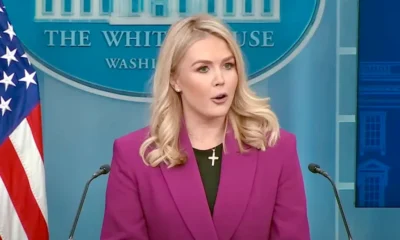
 Guerrahace 20 horas
Guerrahace 20 horasEE.UU.: Irán podría producir una bomba nuclear en «un par de semanas»


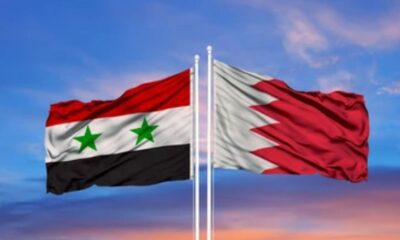

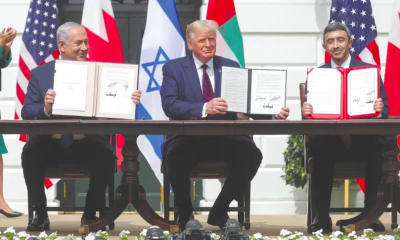

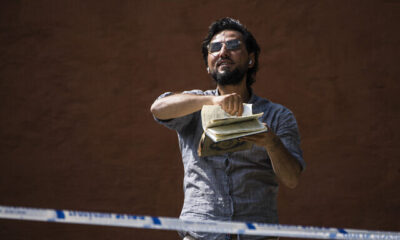

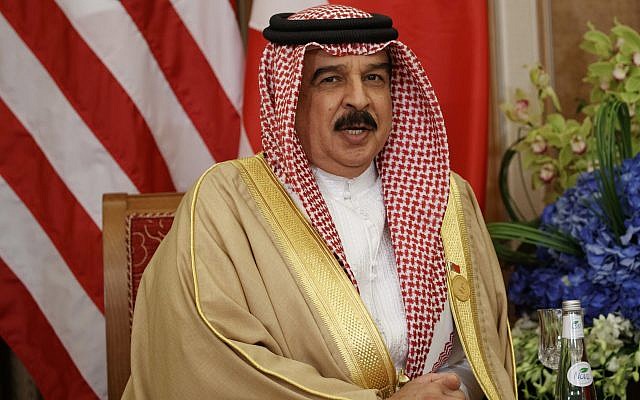
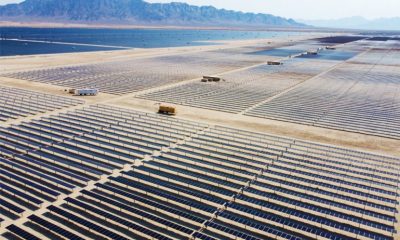


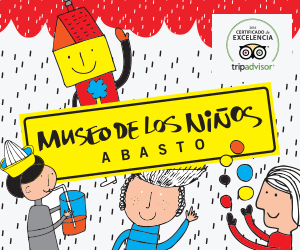
 Suscribite al Whatsapp!
Suscribite al Whatsapp!